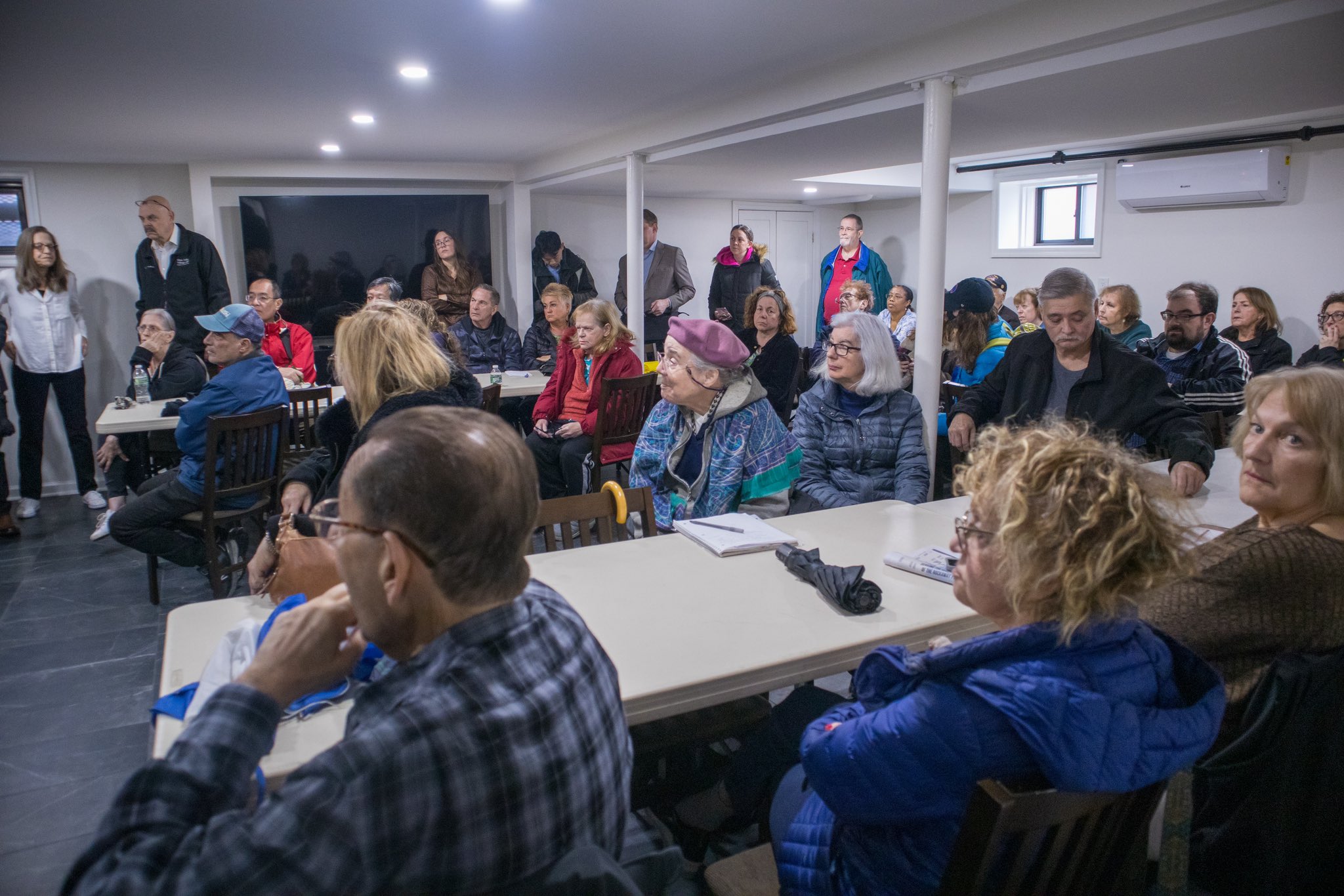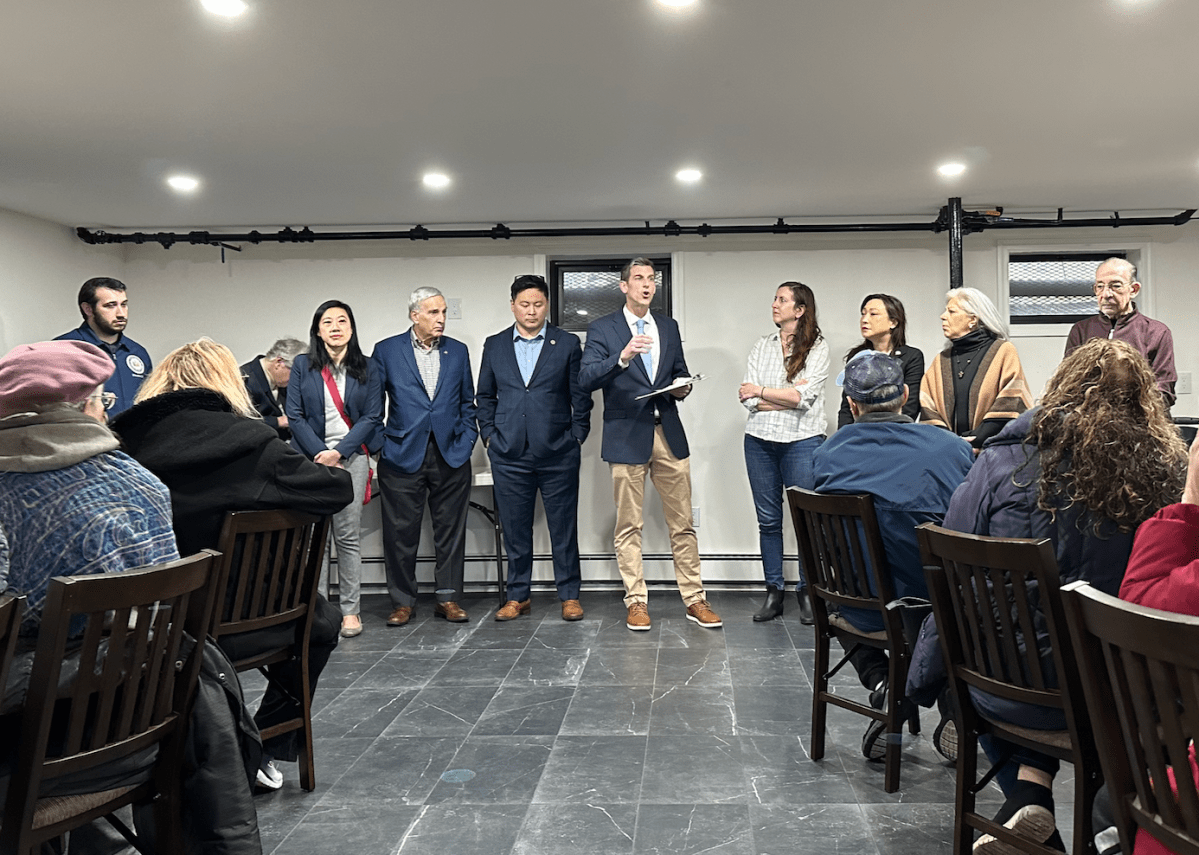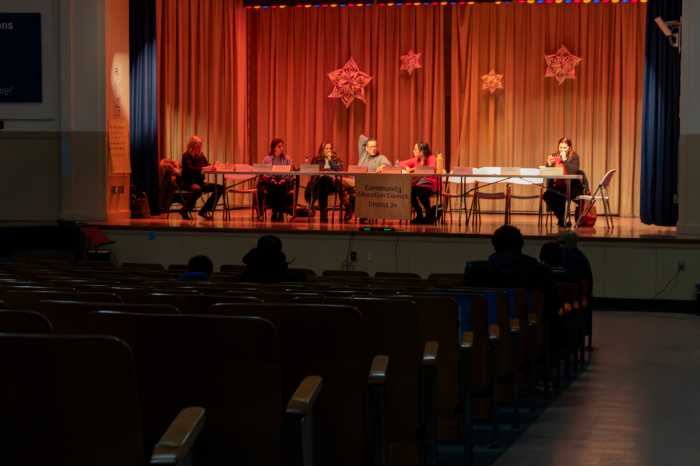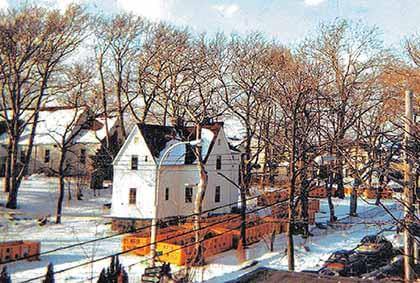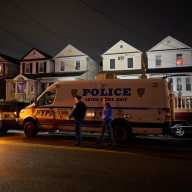Beech Hills co-op owners in Douglaston gathered on Monday morning to hear how northeast Queens lawmakers are working to shield them from bearing the brunt of the cost of the city’s ambitious climate law.
Local Law 97 went into effect in 2019 with the goal of net zero carbon emissions from NYC buildings by 2050, but many are referring to it as an “unfunded mandate” that puts the cost of compliance on the middle class. Earlier this year, greenhouse gas limits on 50,000 buildings went into effect.
Since its passage, city council members have introduced legislation to either delay the start of compliance, which if not met will bring hefty fines on building owners, or put additional considerations on garden apartment co-ops which are concentrated in eastern Queens.
But more recently, State Assemblymember Edward Braunstein (D-Bayside) introduced Bill A5050, which would establish an abatement and exemption from property taxes for the capital improvements needed to comply with carbon reductions under Local Law 97.
While the bill is in the early stages, Braunstein says he’s received bipartisan support from half of the state assembly so far. And on Monday morning, his legislation received collective support from co-op presidents and all other elected officials on a city and state level in the Northeast Queens region.
“Our message today, all of us together, is to the city of New York: Stop dragging your feet, come to the table and let’s have a negotiation about how to solve this problem,” said Braunstein in the community room of Beech Hills Co-Ops. “The city of New York has to do something, whether it’s an abatement, whether it’s a delay, maybe just forgo the penalties. But we cannot continue moving forward with Local Law 97 as it is.”
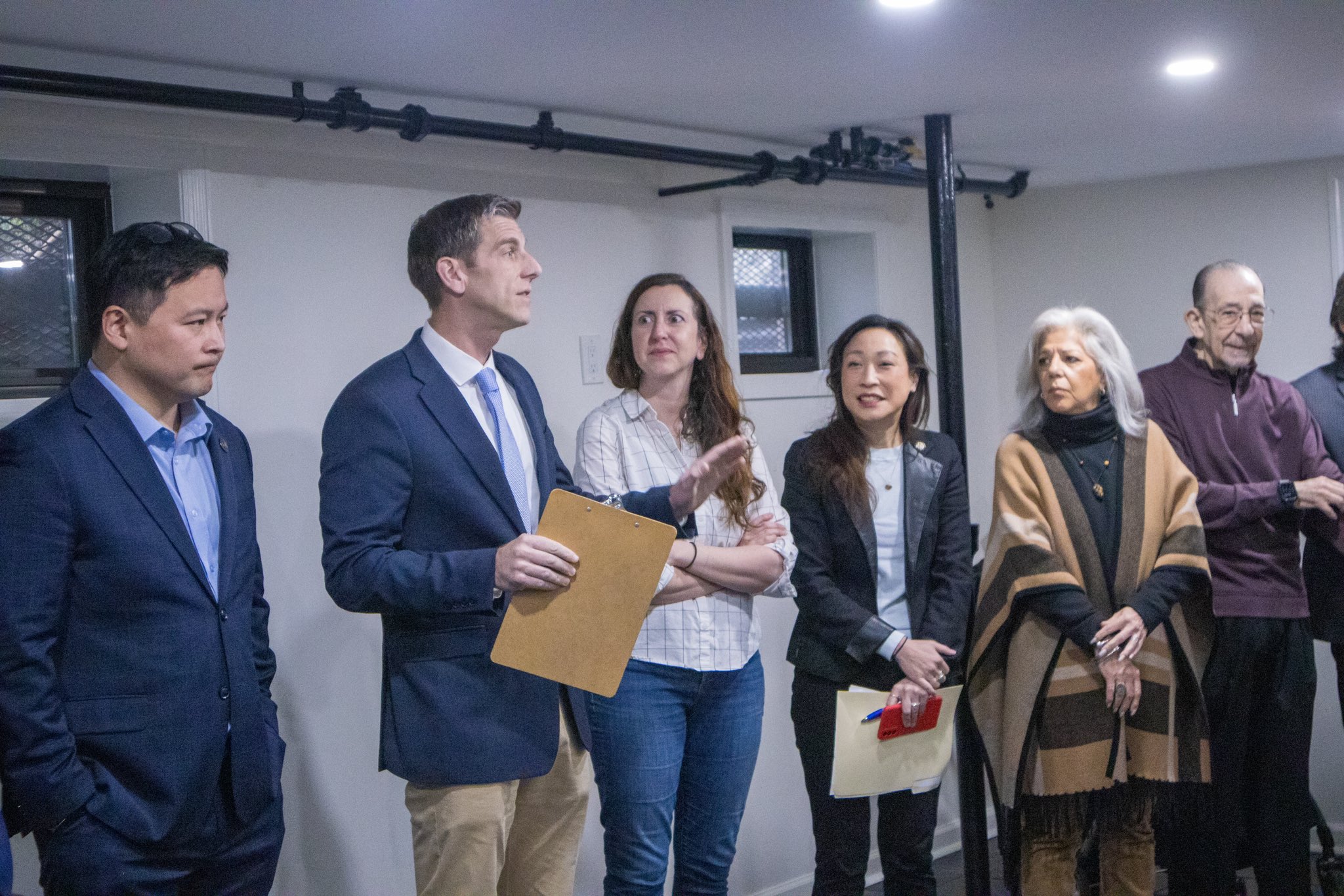
If his bill passes, the co-ops that do invest in upgrading their energy systems from boilers to heat pumps will receive exemptions to their property taxes, which are already some of the highest in the state. Several co-op representatives have said that they’re not sure how to pay the cost of upgrading their systems without taking on significant debt, or forcing the cost onto residents.
“It’s just unfairly punishing co-op owners for requirements that they just are financially unable to achieve,” Braunstein added.
But a significant decrease in property tax revenue for the city could have a measurable fiscal impact. Braunstein said that negotiations would involve coming up with a number that they would be willing to forgo in property tax revenue, and then the bill would be tailored based on what the city is able to work with.
Braunstein says that the bill has the support of the majority of the city council. He added that the mayor, during a recent visit to Albany, said he would also support property tax abatement for co-op owners without offering up a specific number.
Several co-op board presidents in attendance stood behind the proposed legislation on the state level, as well as the city council bills introduced last year.
“We really need this,” said Warren Schreiber, a co-op and condo advocate, about A5050. “It’ll help us become sustainable. It’ll help us to cut our costs, help us to cut our property costs, it’ll raise the value of our properties and it will allow us to comply with Local Law 97.
Bob Friedrich, President and CFO of Glen Oaks Village, echoed a similar sentiment and shared his calculations on the cost of complying with the energy law he referred to as “the greatest unfunded mandate ever imposed on co-ops.”
He determined that for Glen Oaks Village, which is the largest garden apartment co-op in the city, they would have to spend over $24 million, equivalent to an assessment of $9,000 per family. And penalties for noncompliance will start at $394,000 a year up to $2 million.
“Obviously we don’t have that money and the shareholders in these communities don’t have that money,” said Friedrich, noting that 3,000 boilers would need to be replaced with heat pumps in his co-op. “We already pay in New York, the highest electric rates in the country. And the cost of heating our homes with electric in the dead of winter would financially devastate family budgets.”
State Senator Toby Ann Stavisky (D-Whitestone) referred to Local Law 97 as “a mandate without money,” where the government places the burden on local residents, and issues penalties when they cannot comply.
But as a solution, she compared Braunstein’s A5050 to J-51, a property tax exemption and abatement for renovating a residential apartment building which incorporated a sliding scale, that she also worked on crafting with Braunstein.
Assemblymembers David Weprin (D-Richmond Hill), Nily Rozic (D-Fresh Meadows), Ron Kim (D-Flushing) and Sam Berger (D-Kew Gardens) all signed on to the legislation and stood behind Braunstein in support of the bill on Monday morning. With a significant number of co-ops in northeast Queens, most said that the issue was personal to them and evoked their families.
On the city level, council members brought up their own legislation introduced in past years to support co-ops and condos as Local Law 97 continues to roll out. They pointed out that with the new legislative session, the names will be changed.
Last March, Council Member Vickie Paladino introduced Int. 0913 which seeks to push back Local Law 97 from taking effect by seven years. And Council Member Linda Lee also introduced Int. 1197, which takes into account green spaces when calculating carbon emissions of garden apartments, co-ops and condos, while also reducing penalties for these types of units.
Out of the 50,000 buildings that Local Law 97 affects, co-ops and condos make up around 10% of those. And while buildings must encompass at least 25,000 gross square feet to be covered under the law, condos that share a board must be over 50,000 square feet with greenspace currently counted.
“We can all agree that we want to protect the environment, that’s not the issue. The issue is what kind of financial impact this is going to have,” said Council Member Linda Lee, who has the largest number of condos and co-ops in her district. “It’s a financial impact and burden that is going on an already burdened demographic in this city.”
